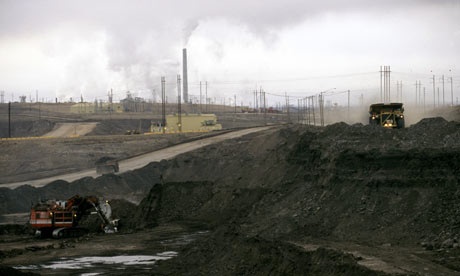02 Dec Canada “is to climate what Japan is to whaling”

The rhetoric is over the top, but the facts are only somewhat overstated in a UK Guardian column that foreshadows complaints Canadians can expect hear as the Copenhagen climate change summit approaches:
After giving the finger to Kyoto, Canada then set out to prevent the other nations striking a successor agreement. At the end of 2007, it singlehandedly blocked a Commonwealth resolution to support binding targets for industrialised nations. After the climate talks in Poland in December 2008, it won the Fossil of the Year award, presented by environmental groups to the country that had done most to disrupt the talks. The climate change performance index, which assesses the efforts of the world’s 60 richest nations, was published in the same month. Saudi Arabia came 60th. Canada came 59th.
In June this year the media obtained Canadian briefing documents which showed the government was scheming to divide the Europeans. During the meeting in Bangkok in October, almost the entire developing world bloc walked out when the Canadian delegate was speaking, as they were so revolted by his bullying. Last week the Commonwealth heads of government battled for hours (and eventually won) against Canada’s obstructions. A concerted campaign has now begun to expel Canada from the Commonwealth.
In Copenhagen next week, this country will do everything in its power to wreck the talks. The rest of the world must do everything in its power to stop it. But such is the fragile nature of climate agreements that one rich nation – especially a member of the G8, the Commonwealth and the Kyoto group of industrialised countries – could scupper the treaty. Canada now threatens the wellbeing of the world.
Hat tip: John Hugh Edwards
